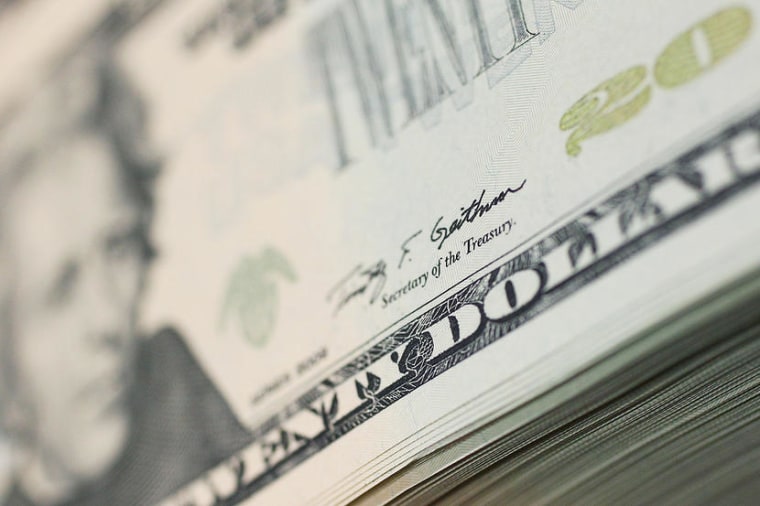As expected, House Democrats are moving forward with plans for a new economic aid package, which will be roughly the same size as the CARES Act that passed in March. The Washington Post reported that the Dems' blueprint would include "around a $1 trillion commitment for states, cities and municipalities," with additional funds eyed for "housing, social services, law enforcement, tribal government needs, food security, the Postal Service, rural broadband, rent and mortgage relief, as well as veterans issues."
Republicans, meanwhile, have also made their priorities clear, and it's fair to say the GOP wish list is ... different.
On Capitol Hill, Republican leaders have insisted that private sector liability protections are paramount, with Senate Majority Leader Mitch McConnell (R-Ky.) describing this as "absolutely essential" and the party's "red line." As GOP lawmakers see it, some businesses are forcing Americans back to work, despite the risks, and Republicans want to leave those workers with limited legal options if their employers' decisions cause illness, injury, or death.
Other Republicans have prioritized blocking an extension of enhanced unemployment benefits. Sen. Lindsey Graham (R-S.C.), for example, assured business leaders last week that current benefits would continue "over our dead bodies."
Given the number of American fatalities during the pandemic, perhaps the Senate Judiciary Committee chairman could've chosen a different phrase.
And then there's Donald Trump, who published a tweet with his wish list yesterday.
"Well run States should not be bailing out poorly run States, using CoronaVirus as the excuse! The elimination of Sanctuary Cities, Payroll Taxes, and perhaps Capital Gains Taxes, must be put on the table. Also lawsuit indemnification & business deductions for restaurants & ent."
This came just a couple of days after the president declared, in reference to the next economic aid package, "We're not doing anything unless we get a payroll tax cut."
Unpacking a confused president's posturing can be a little tricky, but let's focus on a few key points that are worth keeping in mind as the process moves forward.
First, Trump continues to have no idea what he's talking about when it comes to state finances, an issue that divides Republicans and unites Democrats.
Second, the president's call for a payroll tax break doesn't really make any sense given the economic circumstances, and even the White House's congressional allies have no intention of passing such a measure. (Note, Trump pushed the same idea in March, and it flopped then, too.)
And third, it's amazing to me that Trump's wish list included "perhaps Capital Gains Taxes" and "business deductions for restaurants & ent." What he's referring to are proposed tax cuts for wealthy investors and executives who "discuss business" while eating out.
What do measures like these have to do with a pandemic and an economy facing conditions unlikely any since the Great Depression? Not a whole lot, but the Republican president wants to see them "on the table."
The future of the next economic aid package is murky, but the differences between the parties have never been clearer.
